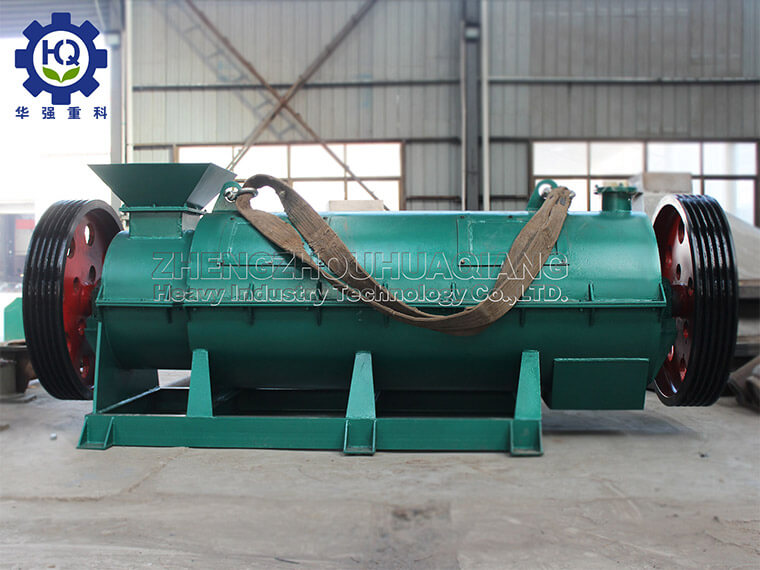As a rich organic resource, cow manure is processed into granular organic fertilizer through an organic fertilizer granulator. Compared with traditional composting or simple drying, it has many advantages. It not only improves resource utilization efficiency, but also has a positive impact on environmental protection and agricultural production. The following are several main advantages of using an organic fertilizer granulator to process organic fertilizer from cow manure:
Improving fertilizer quality:
Nutritional balance: By adding various organic and inorganic components, the organic fertilizer processed by the organic fertilizer granulator can provide various nutrients needed for plant growth, such as nitrogen, phosphorus, potassium, and other trace elements, which is beneficial for the comprehensive and healthy growth of crops.
Good stability: Granular fertilizers are not easily decomposed and can slowly release nutrients in the soil, avoiding nutrient waste or environmental burden caused by excessive supply at once.
Convenient storage, transportation, and application:
Reduced volume, easy to package: The organic fertilizer after granulation occupies less space, making it convenient for large-scale packaging, storage, and transportation.
Uniform application: Granular organic fertilizer facilitates mechanized sowing, avoiding the problem of powdery fertilizer easily drifting with the wind and improving fertilization efficiency.
Improving soil structure:
Enhance water retention and air permeability: Organic fertilizer from cow manure is rich in humic acid and cellulose, which can improve soil particle structure, enhance its water holding capacity and air permeability, and create a favorable growth environment for crop roots.
Promoting microbial activity: During the granulation process, a certain number of live microorganisms are retained, which reproduce in the soil and help decompose insoluble nutrients in the soil, further improving soil fertility.
Reduce environmental pollution:
Reduce greenhouse gas emissions: Compared to natural composting, industrially produced organic fertilizers can better control fermentation conditions and reduce greenhouse gas emissions such as methane.
Preventing soil erosion: While improving soil structure, enhancing soil erosion resistance helps prevent soil erosion caused by rainwater erosion.
Significant economic benefits:
Extended product lifespan: Granular organic fertilizer is resistant to storage, less prone to moisture absorption and solidification, prolongs the market sales cycle, and increases the income of farmers and producers.
Improving crop yield and quality: High quality organic fertilizers can significantly enhance crop yield and quality, thereby increasing farmers’ income.
Promoting sustainable agricultural development:
Reducing dependence on chemical fertilizers: The widespread use of organic fertilizers can help gradually replace chemical fertilizers, reduce agricultural non-point source pollution, and promote the transformation of agriculture towards green and low-carbon.
Circular Agriculture Model: The conversion of cow manure into organic fertilizer is a classic case of resource recycling between animal husbandry and agriculture, reflecting the harmonious unity of ecological balance and economic development.
In short, granular organic fertilizer made from cow manure through an organic fertilizer granulator not only breaks through the functionality of the fertilizer itself, but also demonstrates unique advantages in environmental protection, economic benefits, and social sustainable development, becoming an indispensable part of modern ecological agriculture development.